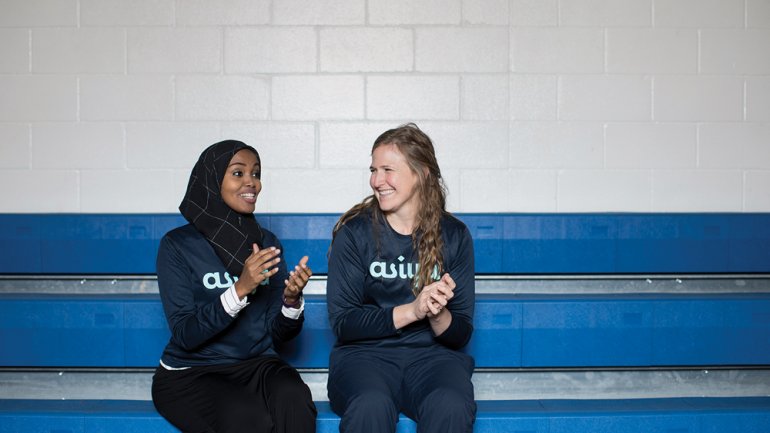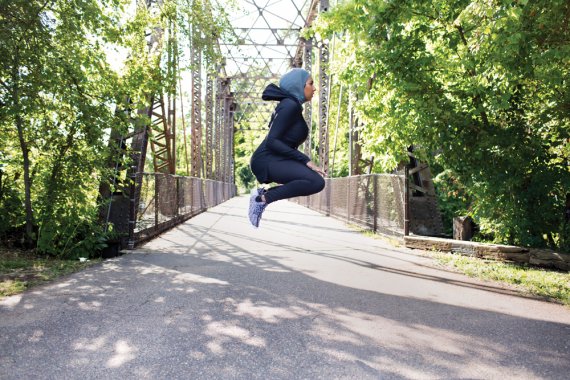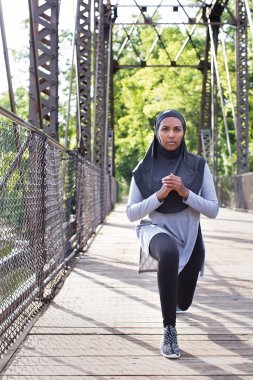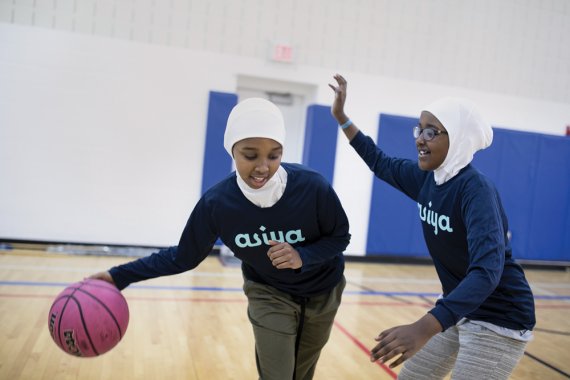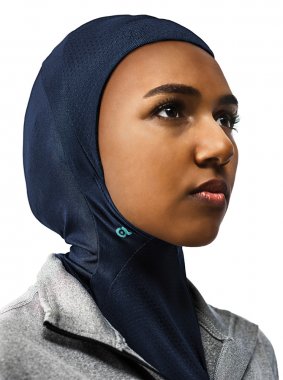Let’s Play
Let’s Play
Muslim women wear hijabs with pride and love. The head coverings can be a symbol of cultural identity, religious devotion, even a form of self-expression. But when it comes to athletics, they can be a big distraction. The worry they might slip off keeps many Muslim girls and women from fully concentrating on the game at hand and, often, from participating at all.
Fatimah Hussein, 30, is working to change that. She emigrated to the US from Somalia with her family when she was 6. Now an entrepreneur in Minneapolis, she champions girls’ participation in sports in the city’s Cedar-Riverside neighborhood, home to the country’s largest Somali and Oromo communities, and around the world.
It started in 2004, when Hussein began volunteering at a local community center. She noticed that many boys took advantage of the gym programs, but few girls did. Many parents, she learned, thought the co-ed space was culturally inappropriate. In response, Hussein established G.I.R.L.S. (Girls Initiative in Recreation and Leisurely Sports) in 2008, a twice-weekly girls-only night that continues today. Behind closed doors, the girls could remove their hijabs and play freely. They could build self-confidence, friendships, and a love of sports.
However, as the girls took that confidence to more public settings, the hijabs returned, with their tendency to slip, trap heat, and distract from play.
Seeing a need, Hussein partnered with the University of Minnesota’s College of Design in 2015 to create a basketball uniform for Muslim girls. The fashion-show debut later that year was a huge success, and Hussein was encouraged to make it available to the public. Seeking a partner, she contacted the university’s Carlson School of Management, where she met MBA student Jamie Glover. In 2016, they founded Asiya, a “modest activewear” company.
To test their designs, Hussein and Glover returned to the girls-only night at the gym. The athletes said they wanted a comfortable, breathable hijab that would stay put. Over the next year, Hussein and Glover developed several versions for the girls to try, noting which ones hurt the girls’ ears or trapped sweat, and which colors they liked. Parents and community elders also advised. “We had input from everyone to make this product feel like it was something that the community owned,” says Hussein.
A family-owned company in upstate New York produces and distributes Asiya hijabs to 25 countries, including Australia, the United Kingdom, Malaysia, and Saudi Arabia. Made of a sweat-wicking polyester-spandex blend, the hijabs come in three styles, each with a different level of coverage.
Schools and coaches are taking note. In 2017, Deering High School in Portland, Maine, became the first high school in the US to provide hijabs for its female Muslim athletes. Team members now can wear Asiya hijabs in white or purple (the school’s colors) or black.
Larger companies are rolling out similar products; Nike released a hijab a few months after Asiya launched. But Hussein’s not worried about the competition – she’s just excited about Nike’s inclusiveness and its wide reach. “For us, it’s all about accessibility,” she says. “If girls have access to a sports hijab, we’re happy.”
